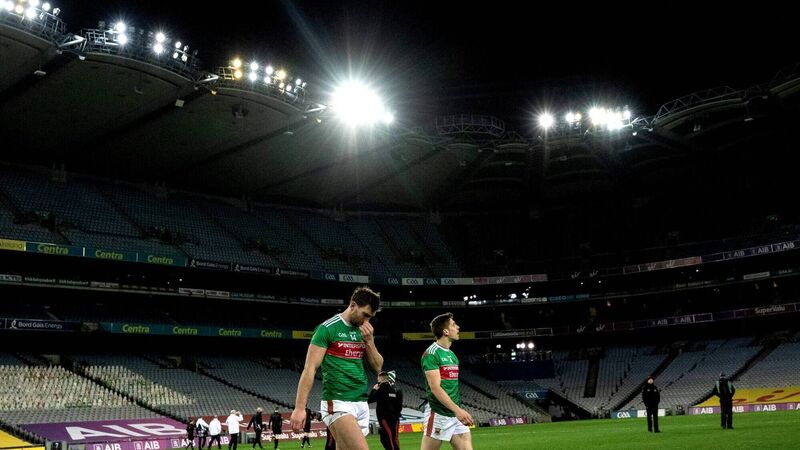Michael Moynihan: Mayo and Waterford would love to be disliked

Mayo’s Aidan O’Shea and Lee Keegan dejected after the All-Ireland final defeat. Picture: INPHO/James Crombie
You have a favourite team, don’t you?
Of course you do.
Try from €1.50 / week
SUBSCRIBE
Mayo’s Aidan O’Shea and Lee Keegan dejected after the All-Ireland final defeat. Picture: INPHO/James Crombie
You have a favourite team, don’t you?
Of course you do.
Already a subscriber? Sign in
You have reached your article limit.
Annual €130 €80
Best value
Monthly €12€6 / month
Introductory offers for new customers. Annual billed once for first year. Renews at €130. Monthly initial discount (first 3 months) billed monthly, then €12 a month. Ts&Cs apply.
Newsletter
Latest news from the world of sport, along with the best in opinion from our outstanding team of sports writers. and reporters
Newsletter
Latest news from the world of sport, along with the best in opinion from our outstanding team of sports writers. and reporters
Thursday, February 12, 2026 - 2:00 PM
Thursday, February 12, 2026 - 3:00 PM
Thursday, February 12, 2026 - 3:00 PM
© Examiner Echo Group Limited